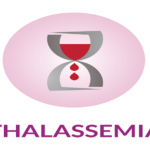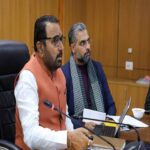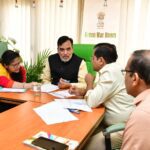Addressing malnutrition which includes under nutrition and over- nutrition, is a preventive strategy, as it has the potential to minimize the health care costs by reducing the requirement for curative health care.
Addressing under-nutrition reduces morbidity and mortality due to communicable diseases e.g tuberculosis, diarrhoea and pneumonia in children and micronutrient deficiencies such as anemia, Vitamin A deficiency etc.
Addressing over-nutrition can curtail the disease burden due to non – communicable disease conditions e.g diabetes, stroke, hypertension and coronary heart diseases (CHD), cancer etc. by reducing over-weight and obesity.
· Government of India is implementing various schemes and programmes to address malnutrition in an effective way.
· MoHFW under the umbrella of National Health Mission (NHM) has implemented following schemes and programmes which address the issue of malnutrition:
o Promotion of appropriate Infant and Young Child Feeding (IYCF) practices that include early initiation of breastfeeding and exclusive breastfeeding till 6 months of age through ASHA worker and health care provider at health facilities. In order to promote and support breastfeeding, Government has implemented “MAA- Mothers’ Absolute Affection” programme to improve breastfeeding coverage and appropriate breastfeeding practices in the country. A greater emphasis is laid on capacity building of the health workers on lactation management at both community and facility levels and 360 degree IEC campaign to create awareness regarding breastfeeding.
o Treatment of sick children with Severe Acute Malnutrition (SAM) at special units called the Nutrition Rehabilitation Centres (NRCs), set up at public health facilities. Presently 1150 such NRCs are functional in States and UTs admitting around 1.8 lakh SAM children annually. Provision of incentive for ASHA for referral and follow-up of SAM children discharged from NRC is also made.
o Vitamin A supplementation (VAS) for children till the age of 5 years.
o ‘National Iron Plus Initiative’ has been launched as an effective strategy for supplementation and treatment of anaemia in children, adolescents, pregnant and lactating women, in programme mode through life cycle approach. Specific program to prevent and treat micronutrient deficiencies through Iron & Folic Acid (IFA) supplementation across lifestages are:
Ø Bi-weekly IFA syrup supplementation to children 6 – 59 months.
Ø Weekly IFA tablet supplementation to children 5 – 10 years and adolescents 10 – 19 years
Ø IFA tablets to pregnant and lactating women.
o National Deworming Day is a fixed day strategy to administer Albendazole tablets to all the children in the age group of 1-19 years through the platform of AWCs and Schools. More than 75 crores doses have been administered since 2014.
o In order to increase awareness about the use of ORS and Zinc in diarrhoea, an Intensified Diarrhoea Control Fortnight (IDCF) is being observed during July-August, with the ultimate aim of ‘zero child deaths due to childhood diarrhoea’.
o Incentives are provided to ASHA for tracking of Low birth weight babies.
o Promotion for intake of iodised salt and monitoring salt quality through testing under National Iodine Deficiency Disorders Control Programme.
o Under the Rashtriya Bal Swasthya Karyakram (RBSK) systematic efforts are undertaken to detect nutrition deficiency among children and adolescents respectively.
o Mission Indradhanush: Launched on 25th December, 2014 with the objective to ensure high coverage of children with all vaccines in the entire country with a high focus on reaching the unreached to achieve 90% full immunization coverage of India by year 2020.
o Rashtriya Bal Swasthya Karyakram (RBSK) provides child health screening for 30 common health conditions by expanding the reach of mobile health teams at block level and establishment of District Early Intervention Centres (DEICs) at the districts for early interventions services.
o Village Health and Nutrition Days and Motherand Child Protection Card are the joint initiative of the Ministry of Health & Family welfare and the Ministry of Woman and Child Development for addressing the nutrition concerns in children, pregnant women and lactating mothers. Village Health and Nutrition Days (VHNDs) are monthly days held at village level in Anganwadi centre to increase the awareness and bring about desired changes in the dietary practices including the promotion of breastfeeding.
· MWCD has implemented the following schemes to address malnutrition:
o Under Umbrella ICDS scheme of MWCD Supplementary Nutrition Programme is being implemented through platform of Anganwadi Centres (AWCs) for addressing under-nutrition in pregnant and lactating women, under-6 children and out-of-school adolescent girls.
o Recently National Nutrition Mission has been approved under MWCD for addressing malnutrition status of the country in a comprehensive manner.
The Minister of State (Health and Family Welfare), Sh Ashwini Kumar Choubey stated this in a written reply in the Lok Sabha here today.







